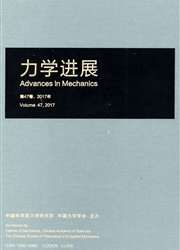

 中文摘要:
中文摘要:
对应用于飞行器非定常运动的数值计算方法(包括动态网格技术和相应的数值离散格式)进行了综述.根据网格拓扑结构的不同,重点论述了基于结构网格的非定常计算方法和基于非结构/混合网格的非定常计算方法,比较了各种方法的优缺点.在基于结构网格的非定常计算方法中,重点介绍了刚性运动网格技术、超限插值动态网格技术、重叠动网格技术、滑移动网格技术等动态结构网格生成方法,同时介绍了惯性系和非惯性系下的控制方程,讨论了非定常时间离散方法、动网格计算的几何守恒律等问题.在基于非结构/混合网格的非定常计算方法中,重点介绍了重叠非结构动网格技术、重构非结构动网格技术、变形非结构动网格技术以及变形/重构耦合动态混合网格技术等方法,以及相应的计算格式,包括非定常时间离散、几何守恒律计算方法、可压缩和不可压缩非定常流动的计算方法、各种加速收敛技术等.在介绍国内外进展的同时,介绍了作者在动态混合网格生成技术和相应的非定常方法方面的研究与应用工作.
 英文摘要:
英文摘要:
CFD methods for unsteady flow simulations are reviewed in this paper,including moving grid generation techniques and unsteady numerical methods.Based on the topology of computational grids,two types of unsteady numerical methods are discussed,e.g.the methods based on structured grids and unstructured/hybrid grids,respectively.Their advantages and drawbacks are analyzed with regard to efficiency,robustness for complex geometries and other features.In the framework of structured grids,several moving grid techniques are reviewed,including the rigid moving structured grid approach,the deforming structured grid technique with trans-finite interpolation,overlapping moving structured grid technique,and patched moving structured grid technique.Then some unsteady numerical methods on structured grids are discussed in the systems of inertial and non-inertial coordinates.In addition,the discretization schemes in temporal direction and the Geometric Conservation Law(GCL)are emphasized for unsteady simulations on moving grids.In the context of unstructured/hybrid grids,overlapping unstructured grid technique,re-meshing unstructured grid technique, node-relaxation approach based on 'Spring analogy' and Delaunay mapping are reviewed and compared.And, a combined dynamic unstructured/hybrid grid method developed by the authors is suggested,which is a kind of coupled method of‘Spring' relaxation,Delaunay mapping and local re-meshing.The GCL approach,the convergence acceleration methods,and numerical schemes for unsteady incompressible flows are discussed for unsteady flow solvers on unstructured/hybrid grids.Some examples and applications performed by the authors are given at the end of the paper.
 同期刊论文项目
同期刊论文项目
 同项目期刊论文
同项目期刊论文
 期刊信息
期刊信息
